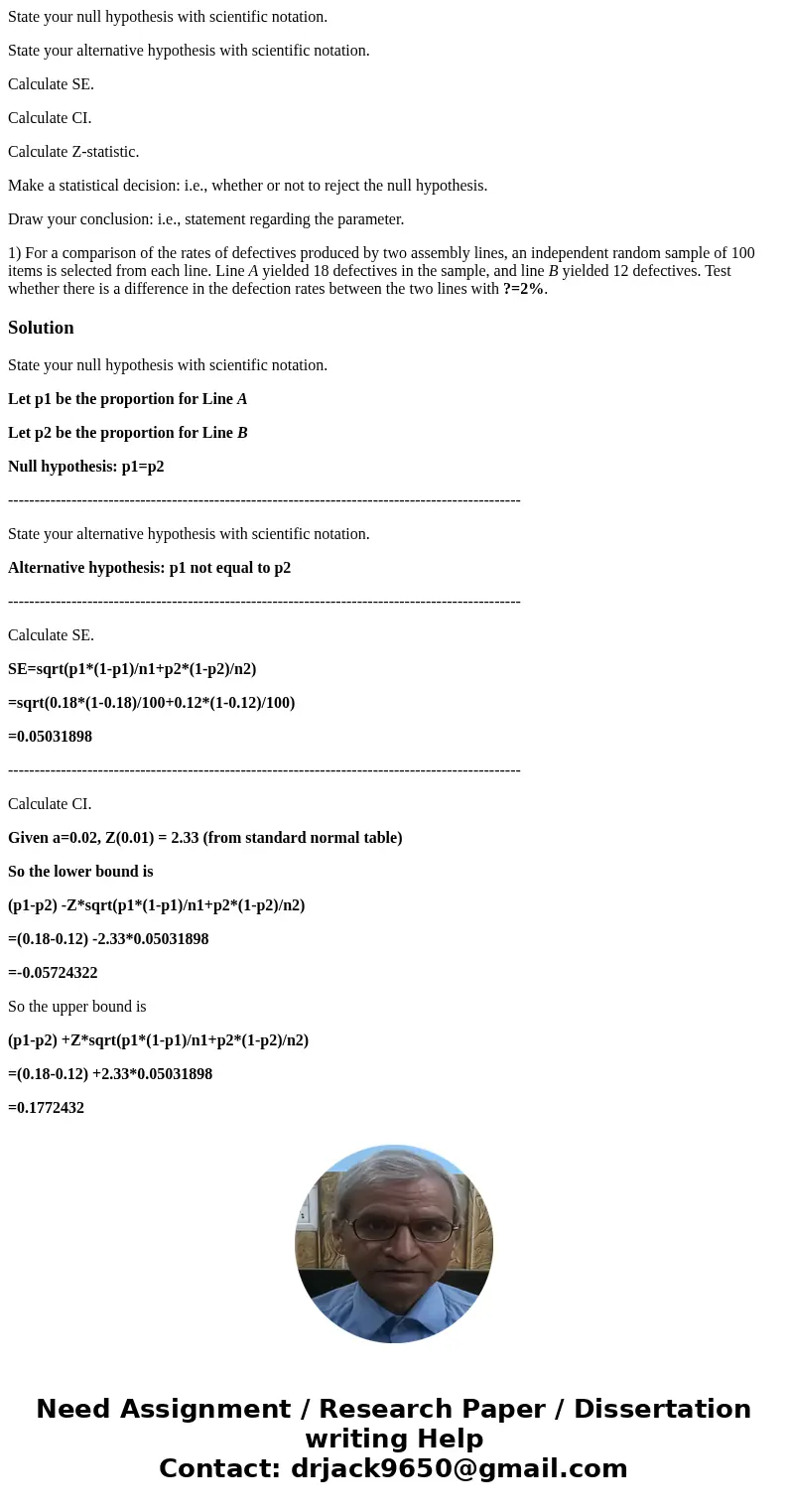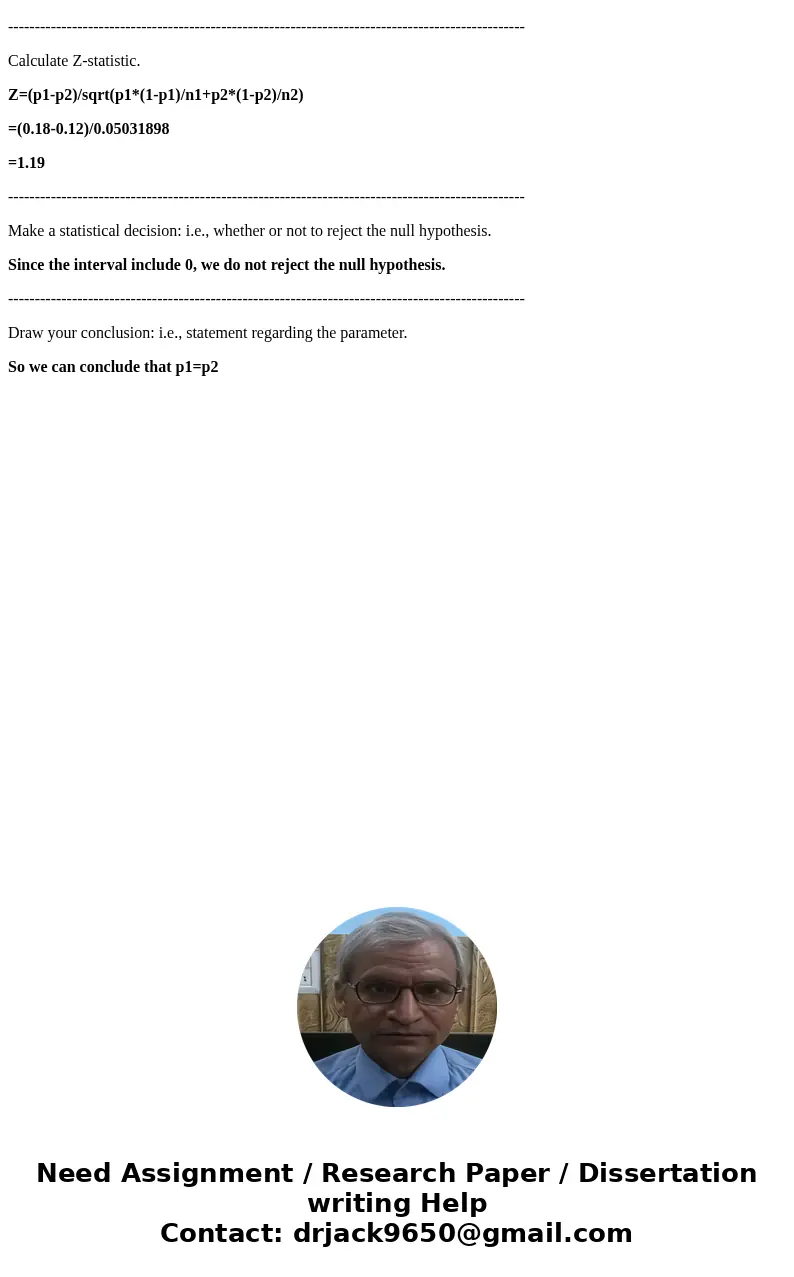State your null hypothesis with scientific notation State yo
State your null hypothesis with scientific notation.
State your alternative hypothesis with scientific notation.
Calculate SE.
Calculate CI.
Calculate Z-statistic.
Make a statistical decision: i.e., whether or not to reject the null hypothesis.
Draw your conclusion: i.e., statement regarding the parameter.
1) For a comparison of the rates of defectives produced by two assembly lines, an independent random sample of 100 items is selected from each line. Line A yielded 18 defectives in the sample, and line B yielded 12 defectives. Test whether there is a difference in the defection rates between the two lines with ?=2%.
Solution
State your null hypothesis with scientific notation.
Let p1 be the proportion for Line A
Let p2 be the proportion for Line B
Null hypothesis: p1=p2
-------------------------------------------------------------------------------------------------
State your alternative hypothesis with scientific notation.
Alternative hypothesis: p1 not equal to p2
-------------------------------------------------------------------------------------------------
Calculate SE.
SE=sqrt(p1*(1-p1)/n1+p2*(1-p2)/n2)
=sqrt(0.18*(1-0.18)/100+0.12*(1-0.12)/100)
=0.05031898
-------------------------------------------------------------------------------------------------
Calculate CI.
Given a=0.02, Z(0.01) = 2.33 (from standard normal table)
So the lower bound is
(p1-p2) -Z*sqrt(p1*(1-p1)/n1+p2*(1-p2)/n2)
=(0.18-0.12) -2.33*0.05031898
=-0.05724322
So the upper bound is
(p1-p2) +Z*sqrt(p1*(1-p1)/n1+p2*(1-p2)/n2)
=(0.18-0.12) +2.33*0.05031898
=0.1772432
-------------------------------------------------------------------------------------------------
Calculate Z-statistic.
Z=(p1-p2)/sqrt(p1*(1-p1)/n1+p2*(1-p2)/n2)
=(0.18-0.12)/0.05031898
=1.19
-------------------------------------------------------------------------------------------------
Make a statistical decision: i.e., whether or not to reject the null hypothesis.
Since the interval include 0, we do not reject the null hypothesis.
-------------------------------------------------------------------------------------------------
Draw your conclusion: i.e., statement regarding the parameter.
So we can conclude that p1=p2


 Homework Sourse
Homework Sourse